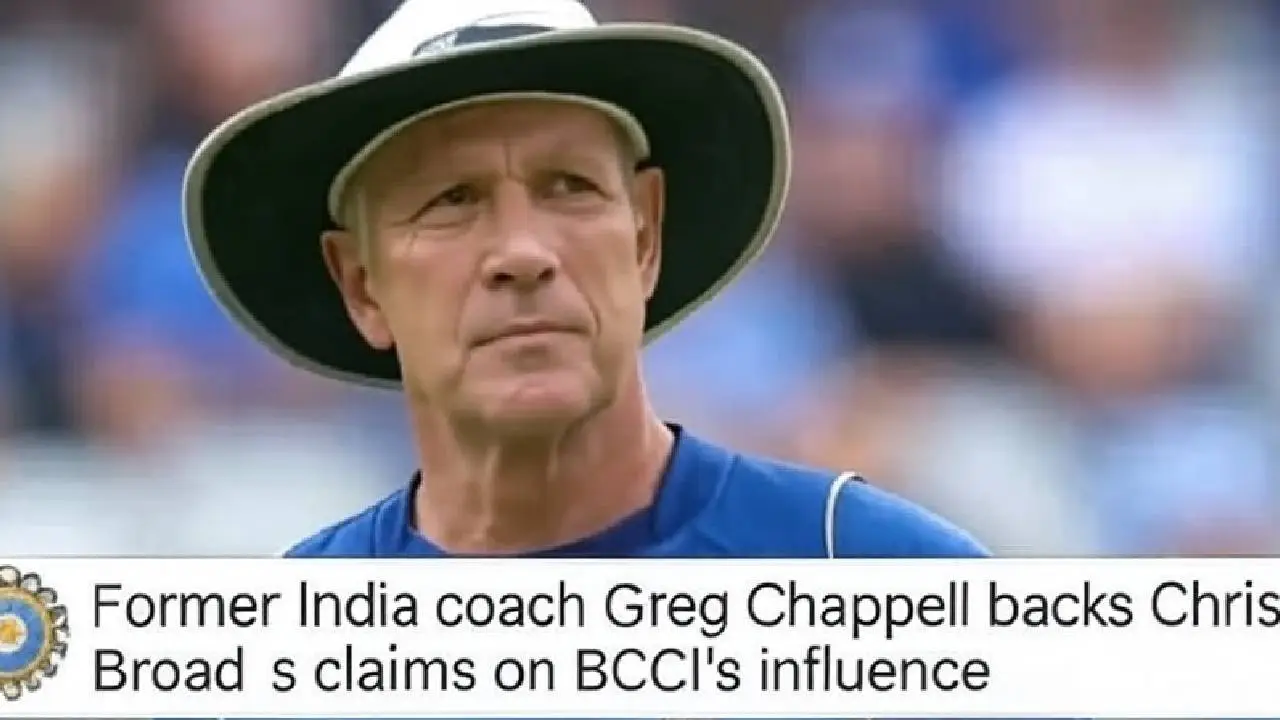
(Credit: OpenAI )
Sports News: A storm has erupted in the cricketing world after former India coach Greg Chappell supported Chris Broad’s explosive charge against the BCCI. Both men, once insiders in the sport, have claimed that India’s financial strength has allowed its administrators to influence global cricket decisions. Chappell, in an interview with the Sydney Morning Herald, recalled an incident in 2005 when Jagmohan Dalmiya allegedly offered to reduce Sourav Ganguly’s suspension to ensure his presence in Sri Lanka.
The revelation comes at a time when Broad has also spoken of outside interference in cricket’s judicial processes. Together, their accounts raise deep concerns about fairness in the game.
Chappell said that at the beginning of his tenure, Dalmiya approached him with a suggestion. Ganguly was facing suspension, and Dalmiya allegedly promised to reduce it so he could play in Sri Lanka. Chappell claimed he refused, insisting that the rules must stand and Ganguly must serve his time. He added that Dalmiya seemed unconcerned about Ganguly missing a few games. This story highlights how politics seeped into cricket administration nearly two decades ago. It also marks the beginning of a turbulent phase in Indian cricket, one that saw Ganguly’s removal and a public rift with Chappell.
Chris Broad, a former England cricketer and ICC referee, recently shared his own troubling experience. He told The Telegraph that during one match, he received a phone call urging leniency for India in a slow over-rate case. According to him, the instruction was clear: “Be lenient, because it’s India.” But in the very next game, Broad claimed he was told to come down hard on Ganguly’s team. His remarks expose a culture where political and financial pressures shaped on-field decisions, leaving referees in an impossible position.
Broad did not mince words when he said India had now taken control of the ICC. According to him, the board’s massive financial power had shifted the balance of authority. With India contributing the largest share of global cricket revenue, its administrators gained a decisive voice in policy-making. He described the ICC as “more political than ever” with India pulling the strings. For fans and critics alike, this is a stark reminder that money can influence even the rules of the game. The sport’s purity appears under constant threat from boardroom deals.
The suspension of Sourav Ganguly in 2005 symbolized the struggle between cricketing rules and administrative influence. Chappell’s refusal to bow to Dalmiya’s alleged offer showed a rare resistance to political maneuvering. Yet, Ganguly’s eventual exclusion from the team and the bitter conflict that followed demonstrated how power struggles can destabilize a side. What should have been a matter of clear regulations turned into a larger political saga. It not only divided Indian cricket but also drew global attention to how governance was being conducted.
Both Chappell and Broad’s claims point to a central theme: money speaks louder than rules in international cricket. With India generating a huge share of cricket’s income, its administrators enjoy unmatched influence. Critics argue this has led to biased decisions, while supporters claim India has only secured its rightful place as the sport’s financial engine. Either way, the accusations reveal a troubling picture of how economics and politics intersect with the gentleman’s game. Questions now loom over whether the ICC can truly remain impartial.
The latest revelations may not shock insiders, but they add fuel to a growing fire. Fans across the world are now asking if international cricket is truly fair or if it dances to India’s tune. With powerful voices like Chappell and Broad speaking out, pressure may mount on the ICC to address these claims. Yet, history suggests that financial clout often wins. For cricket lovers, the hope remains that the sport will prioritize integrity over politics. Until then, the debate on India’s control of cricket will not fade.





Copyright © 2026 Top Indian News
